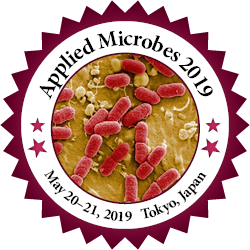
Clarence M Ongkudon
University Malaysia Sabah, Malaysia
Title: Screening of lignin-degrading microorganisms from Sabah Biodiversity for optimum ligninolytic potential
Biography
Biography: Clarence M Ongkudon
Abstract
Lignin is a complex aromatic polymer that intertwining between cellulose and hemicellulose fibers in plant. However, lignin as a by-product during biomass processing is often regarded as nuisance since it retards access to carbohydrates. Recently, there has been much interest in utilization of lignin as petroleum substitutes. In nature, there are diverse groups of microbes that are capable of degrading lignin-rich biomass either in synergistic or competitive manners. Therefore, the use of enzyme cocktails produced from microbial consortia may offer a promising approach to degrade lignin efficiently. The main goal of this research is to search for lignin degrading microbial strains from Sabah biodiversity. Degradation assays to identify suitable isolates for the efficient breakdown of lignin was done on 107 fungi isolates. The results showed that 85 fungi isolates decolorized RBBR (0.01%) effectively compared to Phanarochaete crysosporium. The highest decolorization by F45 with 100% loss of RBBR used. Out of these 85 fungi isolates, a total of 37 and 7 fungi isolates showed higher lignin peroxidase and laccase enzymatic activities, respectively compared to Phanarochaete crysosporium. However, further analysis is required to assess their lignin degrading capability by using real lignin substrate (Kraft lignin).

